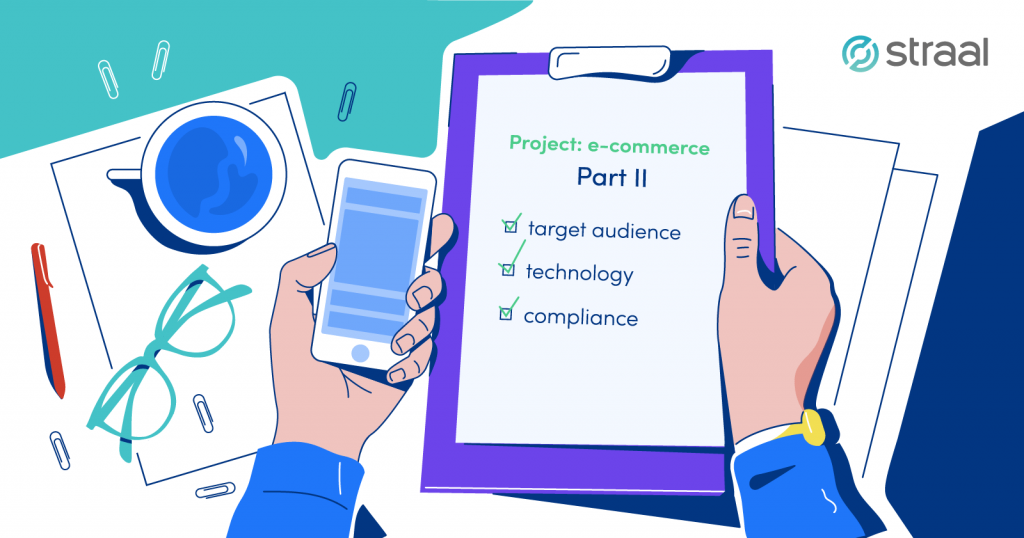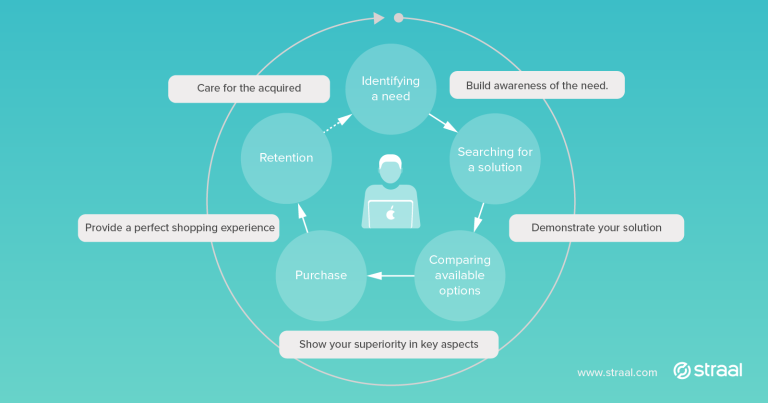In my previous entry, I listed several strategic ecommerce issues omitted by most mid-sized businesses when launching online sales. You already know that most of the starting-point mistakes result from treating an online shop just like another physical store. Here goes the second part where you’ll find even more topics to tick on your strategic to-do list.

Ecommerce Management Issues #5: Developing an Online Customer Base
This ecommerce management issue is closely connected with the first one dealing with defining the goal of starting online sales. As you already know, treating the online channel in the same way as your physical stores is a strategic mistake. To make ecommerce management effective, it’s crucial to do online strategic planning, just like you did with your physical stores.
Segmentation and targeting should be one of the first things to consider in this process. If you don’t define your target audience, you won’t be able to market your products or services in a competitive way. What’s important in the context of ecommerce management is that you should differentiate between offline and online shoppers.
Don’t assume that your online customers are the same as the offline ones. Even if they’re the same people, they have different habits online.
Measuring your online customers’ actions enables you to understand their behaviour and profile them. Your marketing activity should be led by data (provided that you already have it). Affordable customer data collecting is a huge pro of online sales, and you simply have to take advantage of it. A proper profiled online customer base is something your competitors won’t copy, and it may be a strong source of competitive advantage.
Before analyzing your users’ behaviour, think about the link between online and offline customers. Do you want to direct your existing customers to the e-store to cross-sell or up-sell? Use the online shop to reach those who shop exclusively online? Or maybe reach out to foreign customers who cannot visit your physical stores? Answering these questions will make your ecommerce management purpose-driven.
Ecommerce Management Issues #6: Technological Choices
Opening an online sales channel is strictly connected with technology. The decisions to make at the beginning of the process highly influence further ecommerce development on the operational level.
Depending on the platforms you’re going to use (take a look at issue #4), you’ll need different technological skills. The least demanding option is to sell via an online marketplace, where the only technical skill is HTML coding (but you may well do without it). However, if you want to develop your own e-store, it’ll take much more.

If you aim at selling through a web e-store rather than an app, you can make use of some popular ecommerce software (e.g. Shopify, Megento, BigCommerce). From the technical perspective, it requires integrating it with your current website or, if you don’t have one, building an online store from scratch with the use of pre-made templates which you fill in with content. You can also develop your own store in the traditional way, minding that it’ll also need further technical maintenance. The same goes for mobile apps.
Choose your online sales platforms in accordance with the technical skills of your staff. If they’re not sufficient, consider hiring or outsourcing.
At this point, it’s important to assess which skills you already have within your team and which you lack. Making a mistake in this place may be painful: once you decide on your online sales platform and start working on it, turning back and building a new one will be costly.
Ecommerce Management Issues #7: Compliance and Security
Ecommerce is a highly regulated field of trade. As it generates numerous opportunities for fraudsters, the law protects the consumer. Obviously, regulations differ locally, so you won’t be subject to the same regulations in, say, the EU and US, but the sure thing is that you’ll have to comply with some.
Neglecting the legal aspect in the context of ecommerce management is very likely to backfire on you. You risk not only being flooded with consumer complaints but also losing your reputation, one of the most important brand assets.
Make sure that your e-store is compliant with local regulations. Enable your customers to shop safely and securely to build your reputation.
Online shopping security relates mainly to the payment phase. Checkout is the moment when your customer is most exposed to fraud. To prevent it, it’s crucial to choose an appropriate payment gateway equipped with an anti-fraud system (in this post we explain how to choose one).
Before signing a contract, your payment gateway provider will check whether your e-store complies with general ecommerce regulations to exclude the risk of providing services to a fraudster (we explain it in detail in this post). Because of that, if you don’t make sure that your ecommerce doesn’t break the consumer protection law mentioned before, you won’t be able to accept online payments. Theoretically speaking, you can operate without them, but this way, you hit your UX hard and increase the likelihood of cart abandonment significantly.
Don’t Disregard Ecommerce Management
To increase your chances of a successful start on the e-market, plan it strategically. Remember that online sales have their own laws and, thus, shouldn’t be managed in the same way as physical stores. The web gives you infinite opportunities to widen your reach and get to know your customers’ habits better, but without proper ecommerce management, the potential is lost.
If you have additional questions regarding one of the issues explained in this post, don’t hesitate to reach our support team at [email protected]. We will be glad to help you prepare for your entry on the online market, especially in terms of payment security.







